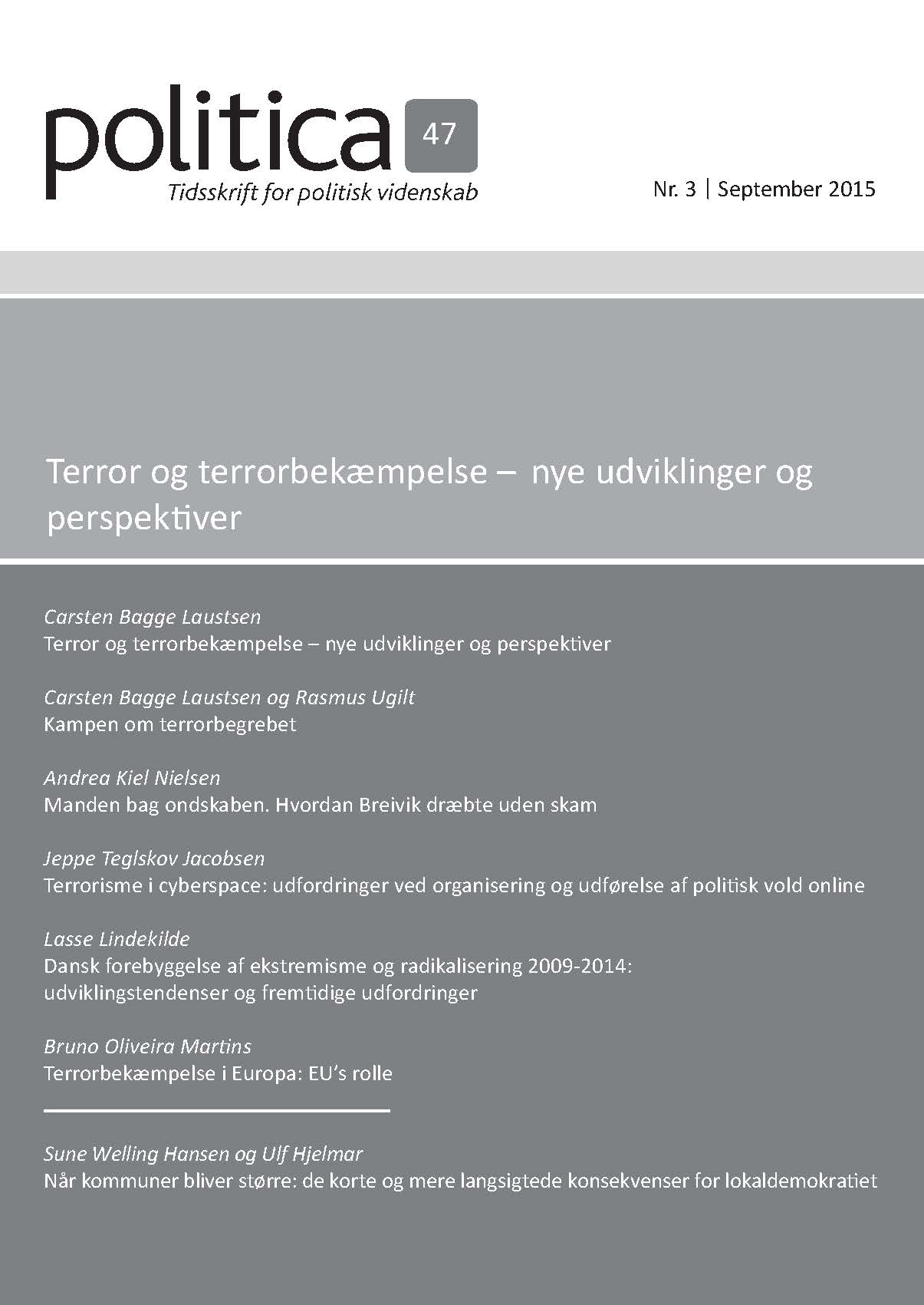Contesting terror
DOI:
https://doi.org/10.7146/politica.v47i3.131442Abstract
What is terror? The question has been surprisingly difficult to answer in the definitive. We approach the problem using William Connolly’s theory of essentially contested concepts. Here three characteristics are important: a concept’s normativity, complexity and application. The aim is not to present an ultimate solution for defining terror, but instead to offer a new frame for studying the problems involved in the struggle over the meaning of the concept. In doing so, we position ourselves in opposition to both realist and conventionalist approaches to defining terror and to other more commonly used approaches to the study of the discursive struggle over the concept of terror. More specifically we distinguish our approach from analyses of hegemony and discursive formations and from conceptual history. We argue that Connolly’s approach can provide a new and productive frame for addressing these issues; it offers a refined understanding of the contestation of the concept of terror, because it gives us an understanding of what it means for a concept to be essentially contested and because it allows us to better distinguish between layers of agreement and disagreement.





